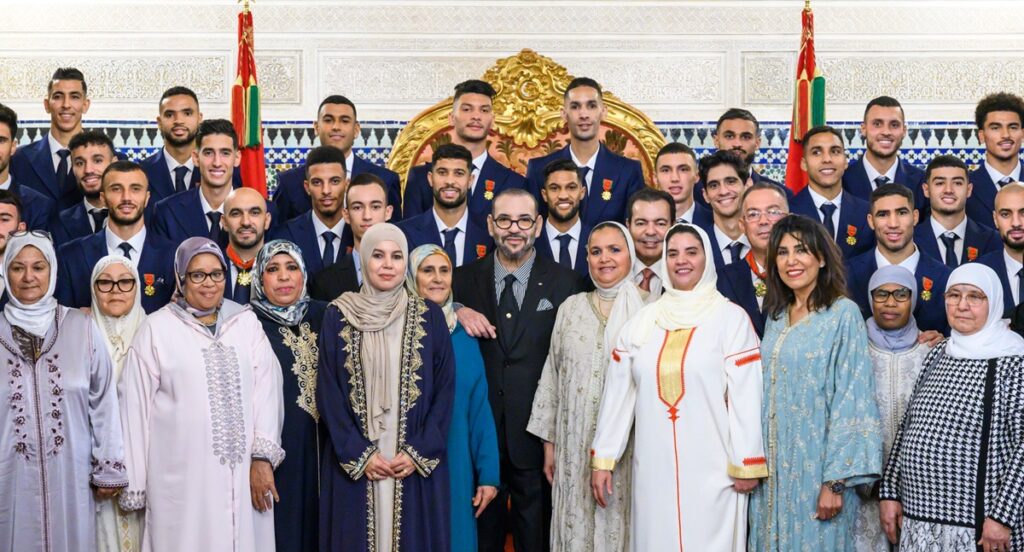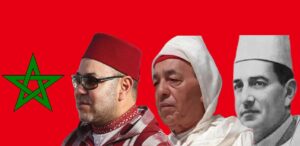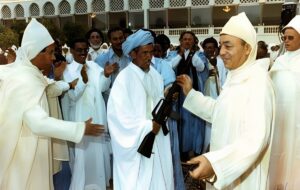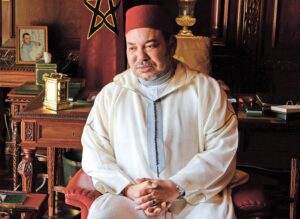The Era of Mohammed VI... Sixth: Soft Power... The Lever That Qualifies Morocco to Take the Lead in Africa

We now come to the end of this series, in which we have attempted to explore the most important features of what we call the “Era of Mohammed VI,” which succeeded in laying the strategic foundations and pillars for restoring the status of the “Sharif Kingdom,” a status that Morocco has long enjoyed throughout its centuries-old history: its soft power. King Mohammed VI, with his forward-thinking vision, realized early on that today’s battles are fought with unconventional weapons, chief among them the soft power of nations, especially if they seek to expand beyond their narrow geographic scope to encompass regional, continental, and international influence. This power is the culmination of the elements of material power, the most prominent features of which we endeavored to expound in the previous five episodes, elevating it to a position of influence and effectiveness.
It is well known that the end of the Cold War between the United States and the Soviet Union, and behind them the Western and Eastern blocs, was decided in favor of the former without a war between them (although they fought proxy battles), and that the most prominent weapon that facilitated the United States' victory was primarily its soft power, along with or including economic power, of course. Morocco, which enjoys a prestigious position within its Arab environment and its Islamic family, was determined to elevate this position on the level of its continent of Africa, and beyond it the international arena in its entirety. This is a huge goal that cannot be achieved without the insightful vision of its King, the professional efforts of its public, private and civil institutions, and the creative energies of its citizens. This is what brought the honorable Kingdom to the position it currently enjoys, continentally and internationally. Here, we will focus on African leadership specifically, as a gateway to global leadership, especially since the Arab-Islamic position is something that has accompanied Morocco throughout its history and is not a new fact.
Beyond academic definitions, Morocco's goal from the outset, as its young monarch has sought since assuming power, was to become a leader in continental influence and one of the most prominent international players on this continent, considered one of the most important arenas of international conflict. This "soft power" influence is built on real political, economic, security, and military elements, which, a quarter of a century later, has led us to a completely different map of continental influence. The picture at the beginning of the third millennium was traditionally as follows: South Africa was the uncrowned leader of the African continent, with absolute control over the southern part of the continent. Opposing it was Nigeria in the west of the continent, with a nearly three-way conflict in the east between Kenya, Tanzania, and Ethiopia, following the decline of Egypt's role. As for the north of the continent, the balance tilted in favor of Morocco over Algeria, despite the "brakes" that the artificial conflict over Moroccan Sahara posed on Morocco's continental agenda. Conversely, the United States and China were key players, followed by France and Russia, with Turkey and Israel far behind as countries seeking a role and influence. A scene that is very different from what the continent is experiencing today: Chinese supremacy, Western turmoil due to the United States' lack of interest in the continent, the decline of French influence under the weight of its colonial past, the striking expansion of Turkish and Moroccan influence, and Russia's belated military intervention.
Here, and because we are talking about soft power tools, Morocco has initiated a series of interconnected strategic steps that, through careful and continuous work, have positioned it to occupy the top spot, while the rest of the “stubbornness” of South Africa resists being displaced from the continental leadership position, and the clear decline of Nigerian power due to its internal problems, primarily economic and security.
The long-standing royal principle of "South-South cooperation, based on a win-win equation" embodied the fundamental approach that earned Morocco the credibility it needed to move forward, leveraging traditional historical factors and innovating factors appropriate to the logic of the times. Morocco's spiritual leadership, with its Emirate of the Faithful and tolerant religious model, its security resilience in the face of advanced and emerging terrorism, and its strong economic ties, were cornerstones in consolidating Morocco's position in the western part of the continent, primarily at the expense of traditional French influence. This early securing of Morocco's "backyard" positioned it relatively comfortably to welcome the expansionist journey to the east, center, and south of the continent. The royal visits, which led to more than thirty African countries, were the cornerstone of this expansion and expanding influence, regardless of language or political barriers. All of this coincided with Morocco's well-thought-out policy toward African migrants, which constituted a unique model in Africa and internationally. This bold policy toward African migrants, at a time when neighboring countries were dumping them in trucks into the Sahara desert, has earned Morocco an overwhelmingly positive reputation and enabled it to achieve a dual goal: On the one hand, it has transformed these “legal” migrants, including thousands of students who have been welcomed by Moroccan training institutions of various specialties, into ambassadors of the noble kingdom in their countries of origin, occupying various positions of responsibility in their respective countries; and on the other hand, it has demonstrated the connection between Moroccan slogans and actions, earning it the natural “leader” position on the continent.
This spiritual leadership was quickly consolidated through the interest of Moroccan institutions operating across the continent in the developmental affairs of the African continent, offering realistic solutions to the real problems facing each individual country, with a focus on strengthening the security situation in the continent against the risks of terrorism, contributing to food and medicine security through fertilizers and vaccines, and strengthening its economies by deploying the expertise of the advanced banking sector and other private sector institutions such as communications, transportation, and infrastructure.

Perhaps what facilitated Morocco's mission, both in Africa and internationally, was its established civilizational model and the wealth of its human potential, based on the inexhaustible creativity of its youth. This has witnessed a boom at key turning points, from the COVID-19 crisis to its sporting achievements, particularly at the FIFA World Cup in Qatar. Morocco's unprecedented achievement, both in the Arab world and Africa, not only reflected the "strength of Moroccan character" and its firm belief in its ability to compete with the "big boys," but also the strength of its unique civilizational values system, evident in the family spirit that was clearly evident on the football pitches, with players' mothers celebrating their sons' accomplishments on the pitch.
This meteoric rise of the "Moroccan brand" has been reflected in the boom in Moroccan tourism, which has positioned it as a continental leader and dramatically expanded Morocco's reach, with millions flocking to visit, meet its people, enjoy its atmosphere, and experience the rich and diverse heritage, culture, and traditional crafts. Thus, the name "Morocco" has become synonymous with success, perseverance, determination, and challenge, as well as with the values of family, reason, and goodwill. This image has been cemented through the ability of Moroccan institutions and individuals to promote it in a calm and modest manner, both online and in real life. It has also been reinforced by the shining examples of Moroccans abroad, paving the way for further successes to come.
Perhaps what fuels this optimism, and lends credibility to the optimism of doubling these successes, is Morocco’s hosting of two extremely important events: the Africa Cup of Nations in football at the end of 2025, and the FIFA World Cup in 2030. Millions of Africans and citizens of the world will flock to Morocco to witness firsthand the extent of Morocco’s development and the sophistication of its people, thus transforming them into new ambassadors for the honorable Kingdom. This qualifies Morocco to rise in the global soft power ranking (despite the methodological observations on it) from its current 50th place to one of the top 20 in record time.
If we link these successes to Morocco's global contributions to peacekeeping, climate protection, and the resolution of international conflicts, it becomes logical that Morocco would be the leading candidate to fill the continent's seat in any potential expansion of permanent membership on the Security Council, given its accelerating drift away from its direct competitor, South Africa, and other smaller regional players.
The reality of Morocco today, in terms of its African and international influence, proves beyond doubt the validity of King Mohammed VI's vision of developing Morocco's soft power, alongside other elements of power. This vision makes the Kingdom, once again, a leader on its continent and a key player in the world.





